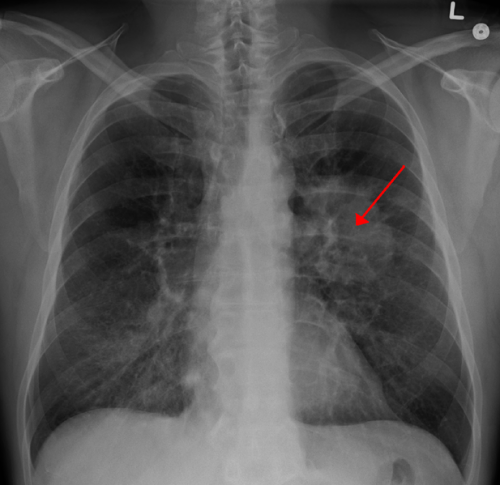
A new study found that non-pungent synthetic analog of capsaicin—the compound that makes chili peppers hot—made small cell lung cancer cells more responsive to treatment. Small cell lung cancer is a very aggressive form of cancer with a low survival rate.
Cisplatin-based combination chemotherapy is typically the first-line treatment for small cell lung cancer patients. Although patients initially respond very well to this chemotherapy, the tumor usually comes back within a year in a form that doesn’t respond to treatments. Patients with relapsed small cell lung cancer have very few treatment options.
“Irinotecan is the only FDA approved second-line drug for small cell lung cancer, but less than 3% of patients respond to it,” said research team leader Piyali Dasgupta, Ph.D., from Marshall University. “Therefore, agents that improve the anti-cancer activity of irinotecan would be of great value to these patients.”
Jamie Friedman, a former doctoral student in Dasgupta’s lab will present the new findings at the American Society for Investigative Pathology annual meeting during the virtual Experimental Biology (EB) 2021 meeting, to be held April 27-30.
The natural compound capsaicin has been shown to have anti-cancer effects, but its heat can also cause a burning sensation, stomach cramps, gut pain and nausea. In the new work, the researchers studied arvanil, a synthetic capsaicin analog without capsaicin’s undesirable side effects.
When the researchers exposed two cisplatin-resistant lung cancer cell lines to a low concentration of arvanil, they saw no growth-inhibitory activity. However, when they treated the cells with varying concentrations of SN38—the active ingredient irinotecan—they observed that the presence of arvanil greatly enhanced the ability of SN38 to slow cancer cell growth. Statistical analysis showed that the interaction between arvanil and SN38 was synergistic in nature.
Source: Read Full Article
